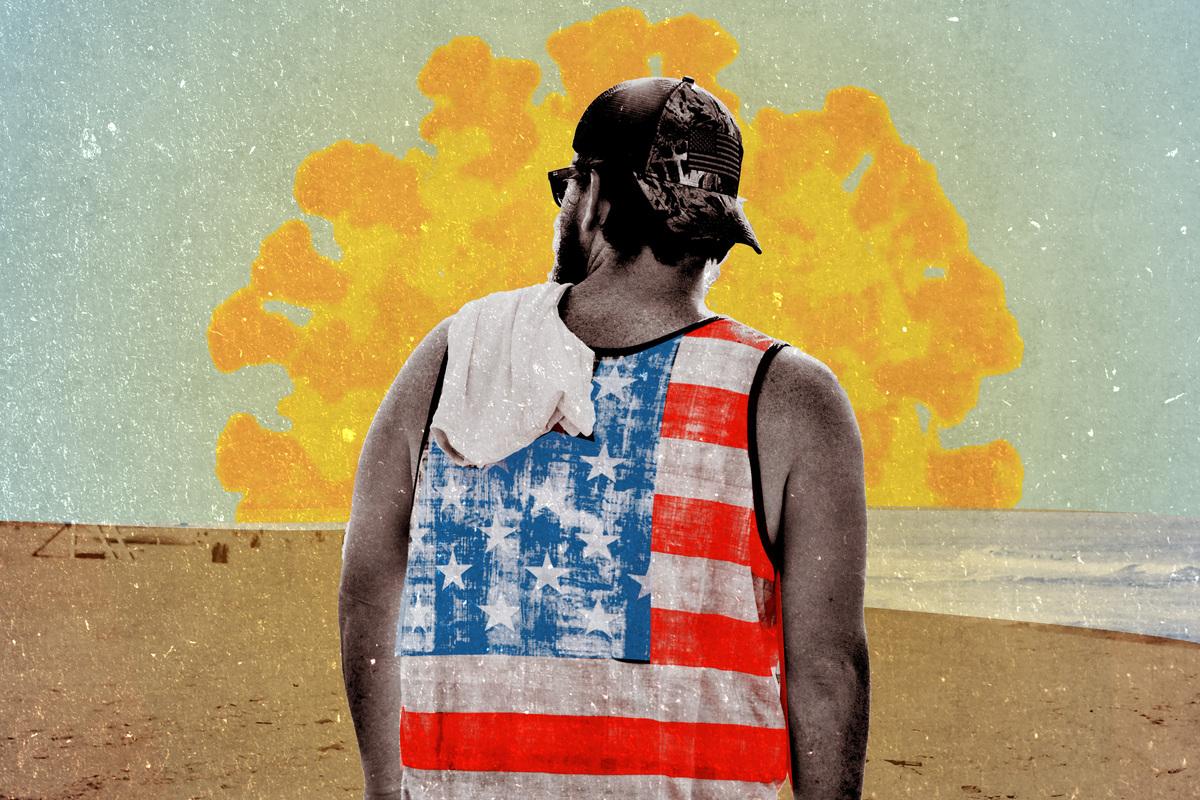
On April 1, Florida Governor Ron DeSantis, a Republican, ordered his state’s residents to remain indoors, barring “essential services and activities,” to limit the spread of the coronavirus. But DeSantis resisted calls to close the beaches. Local officials in towns and counties could make the proper calls, DeSantis insisted, especially in hotspots such as South Florida’s Miami-Dade and Palm Beach counties, where the state’s coronavirus cases have clustered.
DeSantis’s belated response came after tens of thousands of tourists flocked to Florida’s beaches for spring break in March; by mid-April, the state’s infection rate peaked with more than 27,000 cases, including 823 deaths, according to public health officials. DeSantis defended his decision to keep beaches open by noting that some medical experts doubted the coronavirus’s transmissibility in open-air settings, such as the beach. “They want you to social distance, of course, but they actually encourage people to get fresh air,” DeSantis said in March. “They just don’t want you congregating in big groups. And so, if you have a Floridian that goes and walks their dog, like a married couple on the beach, as long as you’re not within 6 feet of each other, they view that as a healthy thing.”
His critics saw DeSantis’s moves as an unwillingness to imperil the state’s $100 billion tourism industry by enacting the necessary measures to “flatten the curve.” DeSantis’s comments also seemed to mimic Donald Trump’s eagerness to resume economic activity; the president’s support was crucial to DeSantis’s election win in 2018. Keep the beaches open, protect the economy, and support the president, DeSantis seemed to say, even as medical experts warned of the risks of not shutting them down.
Over the weekend, photos from Memorial Day celebrations circulated on social media and news websites: a massive pool party at the Lake of the Ozarks in Missouri, a crowded boardwalk in Ocean City, Maryland. Though individual states have begun to relax some of the restrictions on commercial spaces and crowd sizes, the viral photos renewed the popular fears about carefree pedestrians; they might as well be reactionaries and hedonists, every one of them, gathering to swap droplets among themselves before returning home to spread the coronavirus to unsuspecting communities. The unease surrounding large, outdoor crowds isn’t limited to right-wing rallies and rural enclaves. New York Governor Andrew Cuomo and New Jersey Governor Phil Murphy, both Democrats, have relaxed restrictions in their respective states. Crowd-control circles in Brooklyn’s Domino Park are a reminder of the appropriate distance people need to keep from each other and crowds are squeezing into these ad hoc parameters as best they can.
The coronavirus pandemic has relaunched all manners of partisan disagreement about, well, everything: universal healthcare, unemployment benefits, industrial subsidies, U.S.-China relations, etc. In recent weeks, New York City Mayor Bill de Blasio has taken an angry, censorious stance against the pedestrians who disregard social distancing guidelines. He’s criticized mourners, swimmers, and pedestrians who have gathered together in public. The recent warm, sunny weather in New York City has transformed public spaces into crowded picnic scenes, which seem to demonstrate a disregard for the lockdown and the local death toll. But even de Blasio jogs in Prospect Park; presumably, he comprehends the immediate public health goals and the other, extant elements of wellness. “If people want to take a beach chair and sit on the beach, fine,” de Blasio says. “If it starts to seem like a typical summer beach scene, that’s what we won’t allow.”
From opposite ends of the political spectrum, DeSantis and de Blasio have stoked uncertainty about the great outdoors. If DeSantis represents the pro-Trump contempt for the medical experts and news media prescribing caution, then de Blasio—despite his own initial reluctance to shutter the city’s restaurants and bars—now represents the worrisome, prohibitive extreme in preaching confinement and shame for venturing outdoors. At times, he appears to be leaving it to his constituents to find the middle ground between going wild in large crowds and simply going outside at all in the nation’s largest city.
Right-wing protestors and other coronavirus truthers seek immediate and unconditional “freedom” from so many coronavirus countermeasures, including the least onerous directives, such as mask-wearing in public. The U.S. lockdowns were never as restrictive as the quarantine orders that shuttered China, Italy, and Spain for months and prohibited people from stepping outside of their homes without documented justification. In the U.S., individual states haven’t legally prohibited anyone from stepping outside, despite what the right-wing protestors bearing assault rifles and pro-Trump paraphernalia would have you believe. Those demonstrations, however, have been relatively small and confined to the fringes. But as the weather improves, and the lockdowns exhaust even the most dutifully compliant residents in the most restrictive cities and states, the anxiety feels nonpartisan, mainstream, even. There’s some small but powerful consensus to be forged in figuring out how we might all walk safely together on the beach.
How did the U.S. manage to polarize the otherwise agreeable notion of going outside? There’s Trump and the 2020 presidential election, which encourages the partisans to reimagine the coronavirus, now the central issue facing the nation, to either party’s advantage. Democrats see Republicans rushing outdoors to score some flamboyant points with Trump. The president and his apologists seem to believe Democrats designed this entire global predicament in order to spite Trump, a wild and self-serving insinuation that, if anything, gives Democrats far too much credit for their convictions. There’s no great disagreement between liberals and conservatives about the massive challenges that the lockdowns have visited upon millions of U.S. households, ranging from childcare and education to furloughs and layoffs, and the unrelenting instability and isolation. It’s not lost on anyone nationwide how much these lockdowns fucking suck. It’s good and nice and, with some minor precautions, safe to go outside. This may well be the last great national consensus that Americans can reach together.

